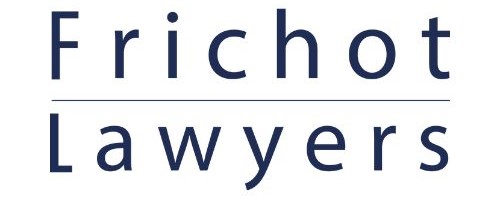You can take it from us. The knowledgeable criminal law team at Frichot Lawyers want to keep you informed about why, in our experience, talking to the police might not always help you. These are some of the reasons why you may want to think twice:
- You simply don’t have to.
Apart from specific interviews under the Criminal Property Confiscation Act or specific questions under the Road Traffic Authorisation to Drive Act about who was in control of a vehicle, no one is obliged to speak to police other than to give their name, date of birth and usual place of residence.
- There are not a lot of ways it can help.
Even if you speak to police and make what is often referred to as an exculpatory statement for example:
“I didn’t do it”,
This, statement can’t be used because it is self-serving hearsay.
- Even if you are innocent you may inadvertently confess to something you did not do.
Being questioned by police can be stressful, confrontational and can catch you off guard. This can cause you to become anxious and act in ways that you wouldn’t normally. There are examples where innocent people have confessed to crimes where the police wrongly told them they had evidence showing guilt.
- A little lie or an answer given by mistake can damage your defence.
You have to remember that any information can be used to help the police. For example:
“I never liked the guy, but I didn’t shoot him.”
A statement like this can be used as an admission that you did not like the deceased and can provide motive. Do not risk compromising your innocence.
- Even truthful responses by an innocent witness can supply damaging information.
There is an assumption that the reliance on our senses means that they are faultless. But, our senses and memory can sometimes deceive us and become unreliable.For example, you might be honestly but mistakenly have a particular recollection of something which turns out to be incorrect which can then be used by the prosecution as a lie.
- Even if you only tell the truth and say nothing incriminating, there is still a chance that something said can help the police.
Be mindful of the fact that the police can use your body language or the circumstances that you are in to help build a case against you .
- Whatever you say will be recorded on a videotape and can be used later in court.
Just like being questioned, videotaping can be an uncomfortable and anxious situation for many. It can cause you to act irrationally and say or do things that you would not do under normal circumstances.
So if you ever find yourself in a situation where you are being questioned by police it is always helpful to remember:
The privilege against self-incrimination is a legal right. It is not a shelter for wrongdoers, although it is often seen that way. Generally, police have to inform you that you are not obliged to talk to them and anything you say will be recorded and can be used as evidence in court. Even discussions with police before a formal interview is commenced can be written down by police and given in evidence by police at a later stage.
As a general rule, if you are feeling pressured into talking to the Police, before you do so request that you speak to a lawyer first.
Ultimately, There is no such thing as an off the record conversation with police.





